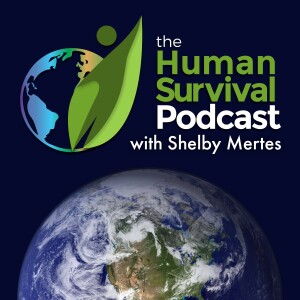
After the COVID-19 pandemic, it’s easy to think we won’t face another global outbreak in the next century. But viruses don’t have a schedule — the next pandemic could be tomorrow. And it could be much more fatal than COVID-19. So, how do we prepare ourselves?
With us to explain the best ways to both prevent and face these outbreaks is David Quammen, an award-winning author, and journalist on science and humans’ relationship with the natural world. He regularly contributes to many distinguished news sources, including the New York Times, the NY Times Book Review, and National Geographic. His 18 books include two on pandemics. “Spillover,” in 2012, accurately predicted a major pandemic could happen soon. In 2022, “Breathless: The Scientific Race to Defeat a Deadly Virus” thoroughly analyzed the world’s reaction to COVID-19. Quammen has traveled the world extensively, allowing him to contribute to today’s conversation with his personal experiences in third-world countries and what he’s seen in the availability of resources for those communities.
Luckily, the threat of viral outbreaks is rooted in something we can change: our actions. By regulating humans’ contact with animals, overconsumption of animal-based products, and the distribution of vaccines and education, we can act proactively on our planet. To save human and non-human creatures, we must adopt a future-oriented approach and find solutions now. If the next pandemic is tomorrow, we can be prepared.
#virus #outbreak #pandemic #pandemicawareness #protectourplanet #publichealth #existentialthreats #grassroots #globalcommunity #unitednations #diseaseprevention #coronavirus #outbreak #overconsumption #biodiversityloss #vaccine
-----
The Human Survival Podcast, hosted by Shelby Mertes.
This show is offered by The Human Survival Project, a global grassroots organization pushing for a redesigned and much stronger United Nations so humanity has the global tools to manage its global existential threats. We’re working to protect the future of humanity and create a world we can be proud of.
** Connect and learn more at: https://www.thehumansurvivalproject.org/ **
Sign up for our email newsletter, or send Shelby a message with any questions or suggestions: https://www.thehumansurvivalproject.org/connect
You can watch this episode on YouTube here: https://youtu.be/slmCOt5na3Y
Please subscribe and tell your friends about the show.
Find us on social media:
https://www.instagram.com/thehumansurvivalproject/
https://www.tiktok.com/@thehumansurvivalproject
https://www.linkedin.com/company/the-human-survival-project/
RESOURCES:
David Quammen’s Website
New York Times - 12/19/23
Mystery Amid an Anthrax Outbreak in Africa
https://www.nytimes.com/2023/12/19/health/anthrax-africa.html?smid=url-share
Grist - 4/27/20
Deadly Leaps: These scientists saw the coronavirus coming. Now, they're trying to stop the next pandemic before it starts.
Vox - 610/20
The meat we eat is a pandemic risk, too
Timestamps:
0:00 - Introduction
2:20 - Description of David Quammen.
5:38 - What is the size of this risk, and what drives it?
8:00 - The three big human-caused problems (“three rivers of woe”) on Earth.
9:07 - Human contact with animals leads to most diseases.
14:30 - Dangers of wet markets.
16:24 - Domesticated meat production and its risks.
21:01 - Leaks of diseases from labs.
24:36 - Adopting a future-oriented approach to find solutions.
26:16 - Communication of information and public trust in science.
28:57 - Science is a gradual and self-correcting process.
32:15 - The next pandemic could be tomorrow (and worse than COVID-19).
38:36 - Rapid development of successful vaccines.
40:41 - Making vaccines and disease education available to ALL countries.
44:12 - Public/private funding and partnerships.
46:45 - Proactive surveillance, containing outbreaks and predictions of viruses.
52:00 - Lack of capacity and resources in hospitals.
55:13 - What is the state of the World Health Organization?
57:19 - Inspecting labs and hospitals would be valuable.
1:00:16 - We need to have more conversations on these issues.
1:01:10 - Pandemic threats and biodiversity loss are co-equal to climate change.
1:03:06 - Losing the world’s creatures.
No comments yet. Be the first to say something!